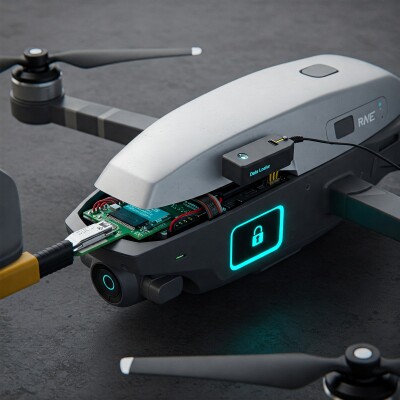wolfSSL is a provider of embedded security solutions, specializing in lightweight, high-performance cryptography for aviation, automotive, satellite, and other mission-critical environments. Founded in 2004, wolfSSL has a long history of delivering robust, standards-compliant security solutions, including SSL/TLS libraries, cryptographic modules, secure boot solutions, and hardware security integration.
wolfSSL specializes in securing data communication with drones. It does this mainly through TLS (Transport Layer Security), secure boot, and data at rest. TLS is a requirement for any device or application that requires communication.
The company’s main products include:
- wolfSSL – A lightweight SSL/TLS library supporting TLS 1.3 and DTLS 1.3, optimized for embedded systems;
- wolfCrypt – A FIPS 140-3 validated cryptographic library offering high-performance encryption and authentication;
- wolfBoot – A secure bootloader ensuring firmware authenticity and integrity for embedded systems;
- wolfHSM – A portable hardware security module (HSM) solution for automotive and industrial applications;
- Post-Quantum Cryptography (PQC) – Future-proof encryption solutions aligned with NIST’s post-quantum cryptography standards.
wolfSSL serves industries such as aerospace, defense, automotive, industrial, medical devices, and consumer electronics, working with developers, OEMs, and government agencies to provide cutting-edge security solutions.  Customers value wolfSSL’s lightweight, open-source approach, strong technical support, and focus on certification standards like DO-178C, FIPS 140-3, and CNSA 2.0 compliance.
Customers value wolfSSL’s lightweight, open-source approach, strong technical support, and focus on certification standards like DO-178C, FIPS 140-3, and CNSA 2.0 compliance.
wolfSSL considers drones a type of IoT application because drones have many of the same attributes as embedded systems and IoT applications. Also notable is that the threat models for drones are most akin to those in automotive, aerospace, and satellite use cases. The company’s wolfMQTT client library is used in drones, while the MQTT protocol is generally useful in both IoT and drones.
How wolfSSL helps solve drone security issues
wolfSSL primarily enables drone manufacturers with TLS, secure boot, and data encryption at rest. TLS stands for Transport Layer Security. This is a cryptographic protocol used by applications to communicate over the Internet in a way that helps prevent eavesdropping, message tampering, and forgery. It protects the wireless communication between the drone and the control unit and mitigates cybersecurity attacks on the drone. It is critical to secure this channel properly, and for some drone use cases, double-layer encryption of the control channel is recommended. TLS goes a long way toward reducing the possibility of a drone hijack.
If an application or device requires communication, then TLS is essential. TLS encrypts data in transit, protecting it from eavesdropping, tampering, and man-in-the-middle attacks. In this era, TLS 1.3 is essentially table stakes in device security. Frequently, next-level assurance comes from FIPS 140-3 validation, DO-178C DAL A support, and post-quantum cryptography.
Secure boot, via the wolfBoot product, helps mitigate both the insider threat of malicious firmware loaded on the drone and external threats of the same. Finally, intellectual property and data on the drone frequently require encryption to ensure that it is not lost to an attacker who gains physical access to the device.
The importance of complying with industry standards
FIPS (Federal Information Processing Standards) sets the requirements for federal organizations and agencies that use cryptography to protect sensitive information. This includes everything from patient data at VA hospitals and telemetry from military assets to secure communications in government networks and data stored in government servers.
wolfSSL maintains FIPS compliance for its cryptographic software libraries through close collaboration with third-party accredited laboratories. After rigorous testing, the company jointly submits the module to the Cryptographic Module Validation Program (CMVP) for FIPS certification. This certification assures the software's approval for use in federal assets requiring FIPS compliance. wolfSSL’s commitment to staying at the forefront of cryptographic advancements means that modules are regularly updated and re-validated, exceeding the standard five-year certification cycle.
Ensuring DO-178C compliance
In addition to rigorous testing and certification processes, wolfSSL is highly proactive in tracking industry developments. Advances in cryptography and attacks on cryptography are constantly monitored to keep wolfSSL’s code as secure as possible.
wolfSSL also ensures DO-178C compliance with a certification kit for wolfCrypt, its cryptographic library, which includes traceable artifacts for regulatory compliance in airborne systems. The company’s cryptographic solutions support secure boot and firmware updates, critical for applications where security and reliability are paramount. The certification kit provides traceability and validation for key cryptographic algorithms, including SHA-256, SHA-384 (hashing), AES (symmetric encryption), RSA, ECC (asymmetric encryption), ChaCha20-Poly1305 (AEAD cipher), and HMAC (message authentication).















Comments